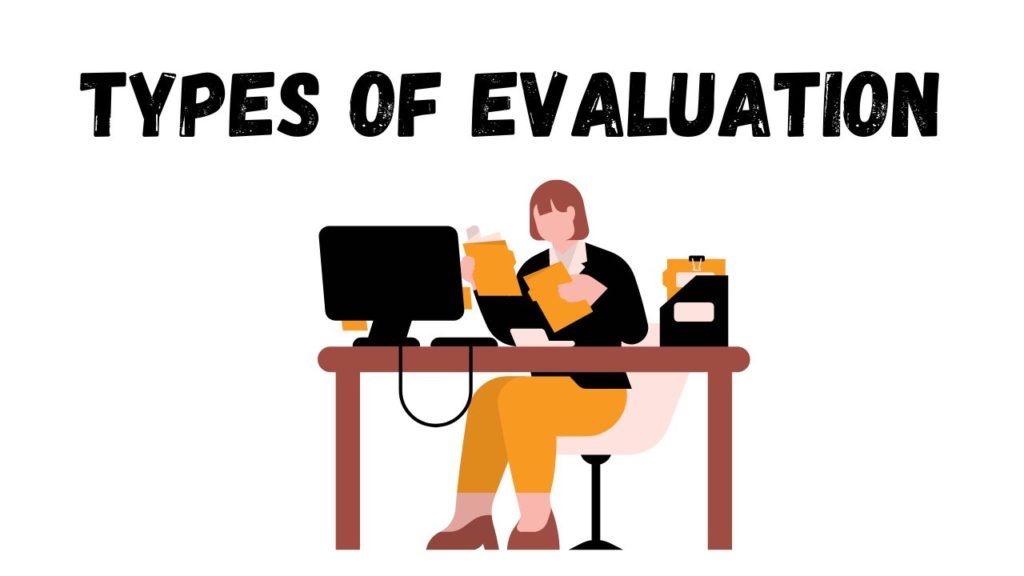It is always important to understand the progress of students to plan better further and work on their weaker areas. Evaluations help to identify the areas of strengths and weaknesses of a student. It also helps to understand the potential of every student, which helps to curate a better learning plan for the students and helps them grow rapidly. Let us understand the different types of evaluation in education processes and how they can be used in a classroom.
What is Evaluation?
Evaluation is the process of assessing the value, worth, or quality of something. In education, evaluation refers to the systematic and ongoing assessment of student learning, progress, and performance in relation to set learning objectives and standards.
The goal of evaluation is to provide teachers and students with information to improve learning outcomes and measure the effectiveness of teaching and learning practices. Evaluation methods can include tests, quizzes, essays, projects, observations, and more. Evaluation is an important aspect of the educational process as it helps teachers understand student learning and adjust their teaching practices accordingly.
Let us talk about different types of evaluation in education that can help teachers.

Different types of evaluation in education
Every teacher uses different types of evaluation in education that are most suitable for their classroom and it is important to understand the different types of evaluation in education processes and how one can use them in their teaching.
1. Formative Evaluation
Formative evaluation refers to the assessment being conducted multiple times. In the formative assessment process, teachers conduct tests after an interval of some time that makes them understand what the students have understood and what they can still learn. It is one of the great methods to understand the ability of students to grasp the knowledge and how you can plan further for their better learning.
This test can be conducted after every 3 months and the evaluation of such results can help in better planning of lessons for the students.
2. Summative Evaluation
Summative evaluation is the type of evaluation that occurs at the end of every academic year. This evaluation decides whether the students will go further into the next grade or will they have to repeat the same year again. This assessment clubs the entire syllabus of the one exam and the evaluation of this results in deciding the future of the students.
Suggested – The 9 Key Learning Factors That Impact Student’s Ability
The students get certifications at the completion of their summative evaluations that help them get into better colleges and higher education. Conducting formative assessments can help students to score better in summative evaluation.
3. Diagnostic Evaluation
Diagnostic type of evaluation helps in finding out the weaknesses of the students and helps them work on them to improve and grow. Finding out the weaker section or areas of improvement helps to improve their performance and score better marks in the summative assessment.
Levels of Evaluation
It is not possible to evaluate performance on solely one criterion. Teachers evaluate students on multiple criteria and through multiple ways such as different levels of evaluation,i.e. Self-referenced, criterion-referenced, and norm-referenced. Let us understand the different levels of evaluation.
1. Self-referenced
Self-referenced level of evaluation means that you compare the previous tests and current ones to understand the growth of the students and how they have improved. This helps to assess students’ growth and motivates them to perform better.
2. Criterion-referenced
In the criterion-referenced level of the evaluation process, a criterion is set to analyze the performance of the students. For example, students have objectives set at the beginning of a lesson that they have to complete. Teachers can analyze whether the students are able to complete all the objectives, within the time limit or not.
3. Norm-referenced
This form of evaluation is basically a comparison between the performance of one student and others in the class. Comparing students’ performance with other students will help you identify where the students are lacking and alter their learning plans accordingly. This helps to find the best strategies to help students improve.
Benefits of using different types of evaluation methods
Using different types of evaluation in education method helps teachers as well as students in creating a better teaching and learning environment. These are some benefits of using different types of evaluation methods:
- Using different types of evaluation methods ensure that the organization is offering the best of programs .
- It makes the teaching and learning process more efficient and effective.
- Helps to find the right direction and take strategic decisions
- Produce trustworthy results
- Helps in proper planning, implementation and evaluation.
Conclusion
In order to evaluate the learning process of your students, teachers need to be aware of evaluation procedures. These include different types of evaluation in education process that are discussed above. It is crucial for teachers to select the best evaluation process based on their unique goals and the requirements of their students because every style of evaluation has its own merits and demerits.
Using different types of evaluation in education can obtain a deeper understanding of the strengths of their students and help them focus on the area which requires maximum improvement.
Types Of Evaluation In Education Teachers Must Know About FAQs
A1. Different types of evaluation in education are formative, summative, and diagnostic evaluation.
A2. The different types of process evaluation need assessments, monitoring activities,
and formative, participatory, and summative evaluations.
A3. The role of a teacher in the evaluation process is to maintain trust and prepare programs for proper evaluation.
A4. The evaluation process is the formal review school does to review the performance of the students and plan their strategies for the future.
A5. Formative evaluation and summative evaluation are considered the best types of evaluation in education.




